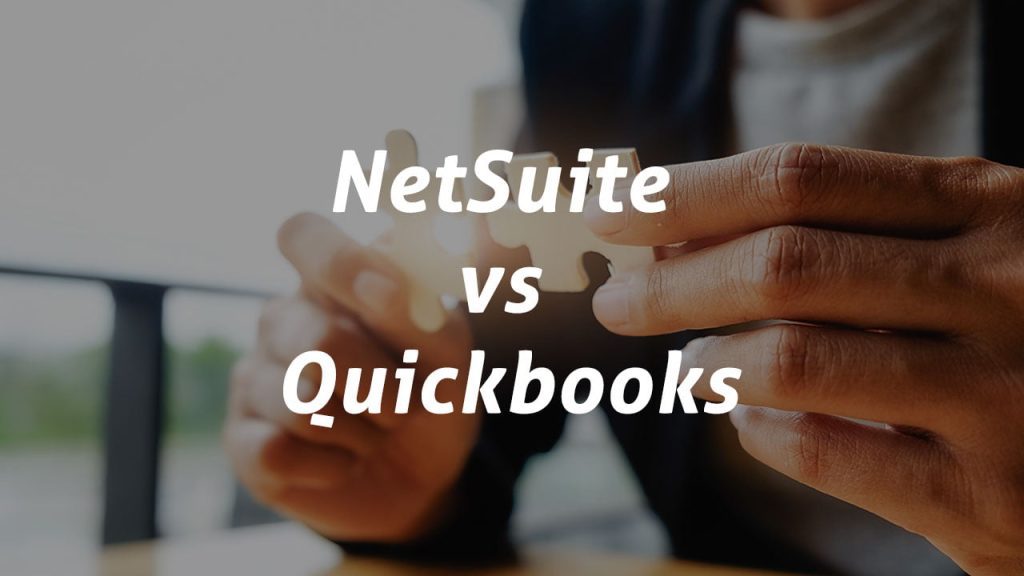NetSuite vs Quickbooks

How NetSuite Can Overcome QuickBooks Challenges:
As businesses expand and evolve, the need for a robust, scalable, and future-ready system becomes critical. QuickBooks, while a valuable tool for startups and small businesses, often falls short when it comes to supporting the complex requirements of growing companies. Can QuickBooks truly handle your growing business needs and adapt to future technologies? The answer, quite simply, is no.
With the increasing demands of modern businesses, companies must rely on an integrated, scalable, and secure system that supports efficient operations, boosts productivity, enhances the customer experience, and ensures long-term success. While QuickBooks may suffice for early-stage businesses, its limitations become more apparent as organizations scale. Below, we explore the primary challenges associated with QuickBooks and how transitioning to NetSuite can provide the solutions your business needs to thrive.
| NetSuite | Quickbooks |
|---|---|
| A Complete Business Suite NetSuite supports all your accounting, sales, and service, inventory, fulfillment, and e-commerce operations in one integrated business management suite. |
QuickBooks is only focused on accounting when it comes to fulfilling customer orders, tracking sales opportunities, or manage customer service, you always need separate applications. |
| Netsuite makes more complex accounting easy. |
QuickBooks does not effectively support multi-site operations, trading abroad, additional subsidiaries, complex pricing, revenue recognition. |
| NetSuite can be accessed from anywhere. Just need a browser or a tablet or a smartphone. |
Most QuickBooks users choose the Desktop version |
| NetSuite automates key financial processes. | QuickBooks customers continue to enter the same data into multiple applications and use spreadsheets for accounting tasks. |
| NetSuite is built to integrate with any other applications. | QuickBooks does not provide a standards-based, open architecture for connectivity to partners and other business apps. |
| NetSuite provides business performance dashboards as standard, all accessible from a web browser so they’re securely available from anywhere. |
QuickBooks gives you limited visibility into business performance. |
| NetSuite eliminates having to worry about backups, security, upgrades, performance and other typical IT issues that slow down your business. |
With QuickBooks, you always have to worry about IT issues and costs. |
| NetSuite was built from the ground up to give small- and medium-sized businesses like the headroom you need to grow your business. |
QuickBooks has limited functionality that will limit your business. |
| Multi-Language, Multi-Currency, Multiple Company & Locations. | QuickBooks is not available in a variety of languages, cannot handle foreign currency functions, and does not support local tax and accounting standards. |
| NetSuite provides advanced analytics and reporting in a single integrated tool. | Analytics is a critical weakness in QuickBooks. Customers are able to run basic financial reports but the information silo prevents users from truly evaluating and improving business performance. |
Challenges with QuickBooks That Limit Growth
1. Real-Time Data Access
2. Inefficient Reporting Capabilities
3. Manual Workflows in Order Processing and Approval
4. Difficulties with Sales Forecasting and Budgeting
5. Lack of Supply Chain Management (SCM) Capabilities
6. Concerns About Technology Updates
Why NetSuite is the Superior Alternative: Best Cloud ERP for Businesses
1. Agility and Scalability
2. Enhanced Financial Management
3. Automation for Order Processing and Approval Workflows
4. Supply Chain Visibility and Management
5. Cloud-Based Flexibility and Future-Ready Technology
Conclusion: Elevate Your Business with NetSuite
Ready to transform your business operations?

Director – ERP Advisory & NetSuite Solutions




